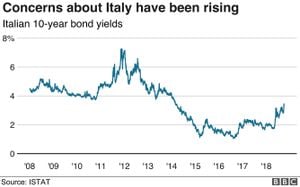Budapest, the vibrant heart of Hungary, continues to thrive as a cultural hub with exciting developments across its film, fashion, and culinary scenes. Spanish star chef Dani García recently made headlines with the opening of two restaurants, showcasing his vision of blending international flavors with local ingredients, making Budapest's gastronomic offer even more colorful.
García, who boasts three Michelin stars, opened his newest establishment, BiBo Budapest, under 11 Apáczai Csere János Street, situated prominently within the city's illustrious 5th district. This latest addition to the world-famous Dani García Group forms part of his aspiration to deliver unique dining experiences. "The concept was born out of my desire to reform the fine dining experience, drawing on my Andalusian heritage and diverse culinary inspirations," García notes on his website.
The restaurant features not only sophisticated dishes but also boasts an exclusive rooftop bar with breathtaking panoramic views of the city. Integrative menus merge the finest Spanish flavors with the rich essence of Hungarian cuisine, providing diners with something truly special. Earlier this year, on May 15, García also opened his Alelí restaurant on Wekerle Sándor Street, near Budapest's picturesque Vörösmarty Square.
After the successful launch of BiBo, García indulged his creative side by visiting the famous Fény Street Market. Accompanied by Hungarian food writer Zsófi Mautner, García expressed his enthusiasm for local culinary culture, remarking, "I liked discovering many local products available only in Hungary and meeting such special people whose connection to the land they cultivate was apparent." His culinary exploration at the market inspired him to create "muntanara lángos," a unique dish featuring fried pizza dough enhanced with sour cream, horseradish, mangalica ham, and pickled vegetables.
Simultaneously, Budapest Central European Fashion Week (BCEFW) attracted exceptional attention, drawing records crowds from February 10-16, 2025. The Hungarian Fashion & Design Agency reported participation of around 6,000 visitors, alongside 13 international journalists and fashion experts; all eager to explore Central Europe’s burgeoning fashion scene. Zsófia Jakab, Ministerial Commissioner for the Development and Sectoral Coordination of Creative Industries, praised the event, stating, "BCEFW has achieved its initial goal of becoming the region’s leading fashion event, bridging the gap between the domestic and global fashion worlds."
This year’s program highlighted the creativity of over 50 local and international designers, featuring 27 Hungarian and 20 international collections. More than 500 designs graced the runways, showcasing the region's talent and contemporary fashion. The HFDA's commitment to elevting the fashion industry's profile through international collaborations was evident, culminating this season's event with over 160 students from 11 schools participating, fostering opportunities for budding fashion professionals.
Adding to the excitement, Mirjána Balogh’s animated short film, Wish You Were Ear, won the prestigious Crystal Bear for Best Short Film at the 75th Berlin International Film Festival, highlighting Budapest's influence on the international film scene. Balogh's stunning 11-minute narrative explores themes of identity and the changes relationships impart on individuals. "I wanted to capture how we can – or cannot – accept the changes caused by past relationships after they end and how these changes become part of our self-image," Balogh shared about her creative intentions.
The film was produced at the Moholy-Nagy University of Art and Design (MOME) with the support of the National Film Institute (NFI) and reflects the university’s growing influence as it transitions to offering international curricula, specializing in game design and immersive storytelling. This recognition at Berlinale is part of the larger trend whereby MOME Animation films regularly garner accolades, showcasing the institution’s commitment to innovative storytelling.
The intertwined developments within Budapest's film and cultural scene not only reveal the city's dynamic present but also signal its promising future as a center of creativity and gastronomic excellence. With culinary talents like Dani García elevting Hungary’s dining scene and fashion events attracting global attention, Budapest stands poised to continue its legacy as a melting pot of culture, art, and innovation.



